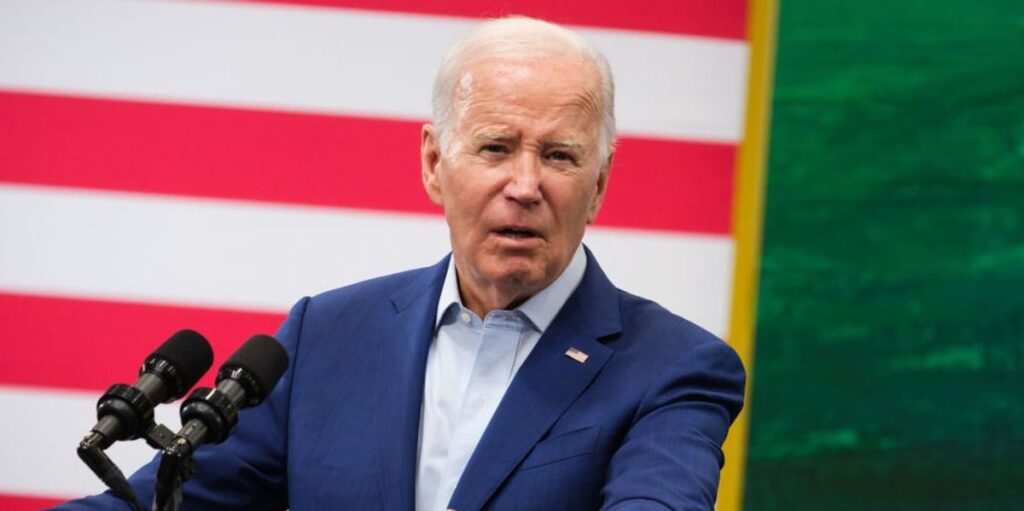President Joe Biden expressed regret for the name of the Inflation Reduction Act on Thursday, admitting the law does not actually reduce inflation.
“I wish I hadn’t called it that, because it has less to do with reducing inflation than it does to do with dealing with providing for alternatives that generate economic growth,” Biden said in Utah, according to a White House pool report.
Biden signed the Inflation Reduction Act into law one year ago at the height of the inflation crisis.
The law was promised to help reduce inflation — as its name says — but immediately after Biden signed it, the media admitted what the bill was really about: not inflation, but climate and health care. Politico, for example, called it a “sweeping climate and health care” bill, while the Washington Post described it as a “sweeping bill to tackle climate change, lower health-care costs.”
The Congressional Budget Office, moreover, estimated the bill would have no meaningful impact on inflation. The agency wrote in a letter last year:
In calendar year 2022, enacting the bill would have a negligible effect on
inflation, in CBO’s assessment. In calendar year 2023, inflation would
probably be between 0.1 percentage point lower and 0.1 percentage point
higher under the bill than it would be under current law, CBO estimates.
The bill only passed the Senate because Sen. Joe Manchin (D-W.Va.) agreed to vote for it. In April, he expressed buyer’s remorse for doing so. But he told the Washington Examiner this week that he stands by the law.
The inflation crisis has mostly subsided, though inflation ticked up to 3.2% in July from 3% in June. The Federal Reserve, which has continued to raise benchmark interest rates to control inflation, targets an inflation rate of 2%.
Core inflation — which measures inflation of all goods minus volatile food and energy — remains at a dismal 4.7%.
Like Blaze News? Bypass the censors, sign up for our newsletters, and get stories like this direct to your inbox. Sign up here!


